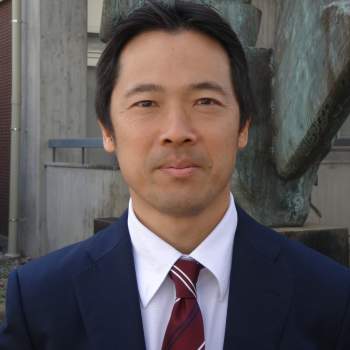The U.S. President Joe Biden was on a two-day visit to Poland in March and concluded it with a speech about the Russo-Ukrainian War at Warsaw’s Royal Castle. In the speech, he castigated Russian President Vladimir Putin for initiating an invasion against Ukraine and stated ad lib, “For God’s sake, this man cannot remain in power.” Immediately after the speech, a White House official downplayed his remark, saying, “He was not discussing Putin’s power in Russia, or regime change.” Biden excused himself to the press two days after his speech. He stated, I wasn’t “articulating a policy change. I was expressing moral outrage that I felt.”
Incidentally, the Biden administration denies pursuing regime change not only in Russia, but also in China, which it calls the “most serious competitor” to the United States. The Indo – Pacific Strategy, released by White House in February, stipulates that “(o)ur objective is not to change the PRC (People’s Republic of China) but to shape the strategic environment in which it operates, building a balance of influence in the world that is maximally favorable to the United States, our allies and partners, and the interests and values we share.”
As James Carden, a former advisor to the U.S. State Department, points out in his recent column, it is worth revisiting George F. Kennan’s article published in the Foreign Affairs in 1951, in relation to Biden’s ad lib remark in Warsaw. In his article “America and the Russian Future,” Kennan states that “no great and enduring change in the spirit and practice of government in Russia will ever come about primarily through foreign inspiration or advice. To be genuine, to be enduring and to be worth the hopeful welcome of other peoples such a change would have to flow from the initiatives and efforts of the Russians themselves. It is a shallow view of the workings of history which looks to such things as foreign propaganda and agitation to bring about fundamental changes in the lives of a great nation.”
When Kennan wrote this article, the United States had occupied West Germany and Japan to democratize them. Since then, the two countries have kept their democracies vibrant. This is generally seen as proof of how effective the American enterprise to remake them was, though this observation obviously conflicts with Kennan’s argument above.
America’s occupation of Germany and Japan was acclaimed in the United States, especially around the time of the Iraq War initiated by the George W. Bush administration. According to historian John Dower’s book, Ways of Forgetting, Ways of Remembering, published in 2012, “This is when administration officials began evoking the occupations of Japan and Germany after World War II as models or mirrors – or even talismans of a sort – for the liberalization and pro-American reorientation that could be expected in Iraq once Saddam Hussein was overthrown. Japan quickly emerged as a more seductive putative lodestar than Germany, for obvious reasons: like Iraq, it was non-Western, nonwhite, and non-Christian.”
In an op-ed essay in the New York Times on October 27, 2002, while Dower admits that “the occupation of defeated Japan was a remarkable success,” he notes that “most of the factors that contributed to the success of nation-building in occupied Japan would be absent in an Iraq militarily defeated by the United States.” Among the factors he mentions, he puts special emphasis on the Japanese receptivity, saying, “What ultimately enabled the Americans to institutionalize democracy in defeated Japan was not only the existence of strong prewar democratic traditions, but also the survival and cooperation of the existing bureaucracy. The administrative structure remained essentially intact from the central ministries and agencies down to the level of town and village governments, and administrators at all levels often proved genuinely receptive to the vision of a new and better society.”
The word “genuinely” should be emphasized in order to not draw wrong lessons from the American occupation of Japan. Although the Japanese people could have refused “the new vision of a new and better society” offered by the United States, as many Iraqi people did, they embraced it positively instead. This positivity or spontaneity of the Japanese people was a key factor that led to the success of the American occupation. From this perspective, Henry Kissinger’s remark in an interview with a Japanese newspaper, Yomiuri, in December 2014 is noteworthy. After referring to the change of the international order since 1945, he stated, “We (the United States) are coming from a period when it was thought that we could remake the government of every other country based on a wrong analysis of the Occupation in Japan and Germany. We did not remake Japan. Japan adapted itself, but within its traditional values.”
It would be certain that behind Kissinger’s remark, there was America’s struggle with nation-building in Iraq since 2003. Through the struggle, the American Establishment belatedly learned that no great and enduring regime change would come about “primarily through foreign inspiration or advice.” The great setback in Afghanistan last year must have strengthened that recognition further. It would be all right, therefore, to accept Biden’s excuse about his ad lib remark in Warsaw at face value.
However, like Putin, who started a war with Ukraine to establish a pro-Russian regime in Kiev, there still are world leaders who believe that they can force regime changes on people who do not want them. Although it might be too late for Putin unfortunately, they should read Kennan’s Foreign Affairs article of 1951, with the sound historical understanding of how Germany and Japan achieved their regime changes after the Second World War.
[Photo by U.S. Department of Defense, Public domain]
The views and opinions expressed in this article are those of the author.

Keikichi Takahashi is a professor at Osaka University in Japan, specializing in U.S. diplomacy toward East Asia. He is the author of a Japanese-language book titled “China or Japan? The American Search for a Partner in East Asia, 1941-1954.”

